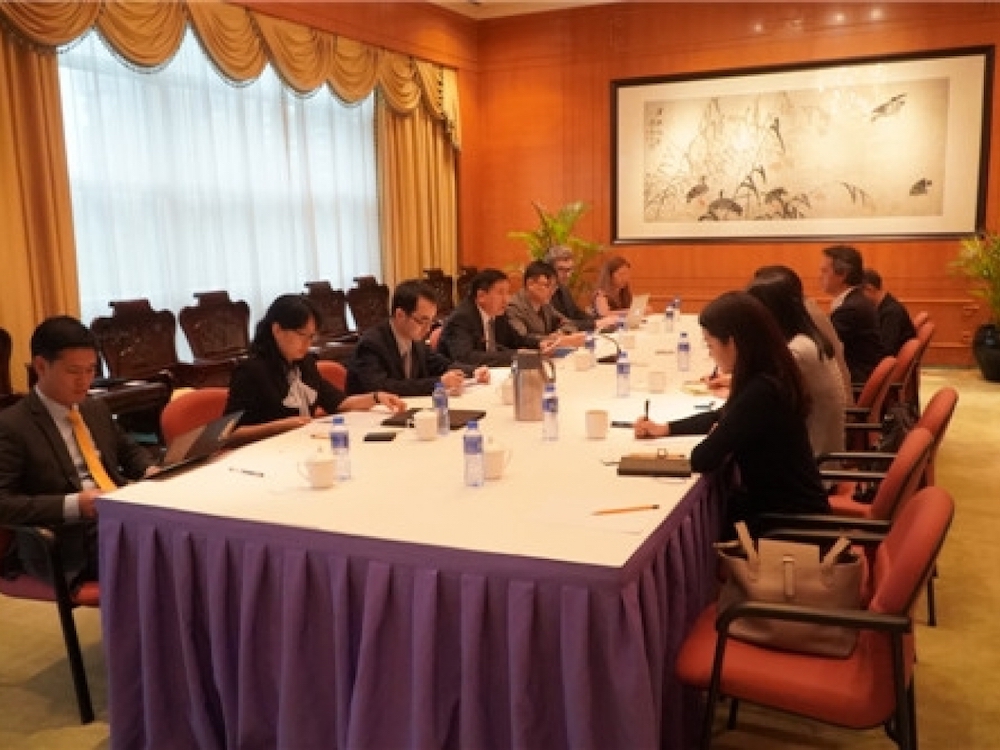Hong Kong representatives of China’s central government this week called a meeting with several foreign media outlets over concerns that their coverage of controversial proposed amendments to the city’s extradition laws was really bumming people out.
The Office of the Commissioner of the Ministry of Foreign Affairs sat down with representatives from several major outlets — Reuters, the Japanese wire service Kyodo, the Financial Times, and US-based broadcasters CNN and CNBC (Coconuts HK’s invitation probably got lost in the mail) — on Tuesday to ask if it would really kill them to be a little more upbeat about the whole extradition-to-the-mainland thing, RTHK reported today.
A statement from the office said that its deputy commissioner, Song Ru’an, had asked the assembled journalists to be “fair, balanced, and objective” in their reporting, and to also try “injecting positive energy” into their coverage of the issue.
The proposed changes would allow, for the first time since the handover, ad hoc extradition to Taiwan, Macao, and the mainland, prompting an improbably broad coalition of businesspeople, activists, lawyers, clergy, foreign governments, and, yes, journalists to express concerns over the bill.
While Hong Kong has long been considered to have some of the best courts in Asia, the proposition of extraditing residents to the mainland would put them at the mercy of China’s notoriously opaque legal system, critics say.
In a subsequent report on the bill, Reuters mentioned the meeting, saying that Song had told them that the loophole the legislation is meant to address was “becoming increasingly conspicuous,” and that the central government “resolutely supports” the passage of the bill.
The legal changes were first proposed as a measure for dealing with the case of a Hongkonger wanted in Taiwan for murdering his pregnant girlfriend during a Valentine’s Day trip there last year. The man fled back to Hong Kong, where he has since been tried on related money laundering charges, but the city’s courts are unable to try him for the murder as it took place outside of their jurisdiction.
Pro-Beijing officials have repeated pointed to the case in their defense of the extradition measures, without which, they claim, Hong Kong will become a lawless magnet for fugitives and ne’er-do-wells.
Practically everyone else, meanwhile, Taiwan included, feels differently. The self-governed island has repeatedly expressed reservations about the law, and has even gone so far as to say that if it is passed, they’ll no longer seek the murder suspect’s extradition.
Responding to news of the meeting between the press and the central government representatives, the outgoing president of the Hong Kong Foreign Correspondents’ Club, Florence de Changy, told RTHK: “It is not in the tradition of Western media to be told what to write or what tone to adopt by any government. We have invited the Chinese authorities to present their views at the FCC and I hope they will do it in due time.”
Meanwhile, Emily Lau, a former Democratic Party chairwoman and a journalist herself, called on reporters “not to listen to the Chinese government when they give such instructions.”
“In fact, I think they should tell them to shut up and let them do their job,” she added.





Reader Interactions